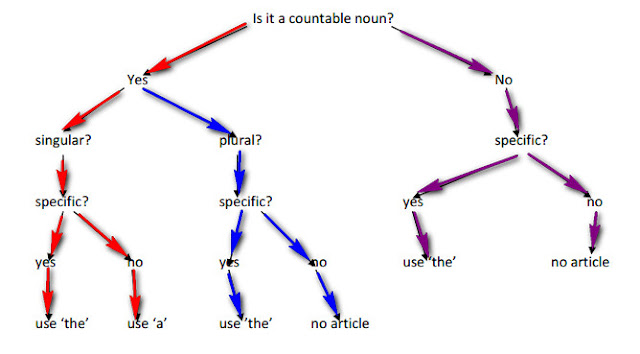Rules of The Conditional Type zero
The Conditional Type zero
We can make a zero conditional sentence with two present simple verbs (one
in the 'if clause' and one in the 'main clause'):
- If + present simple, ....present simple..
This conditional is used when the result will always happen. So, if water
reaches 100 degrees, it always boils. It's a fact. I'm talking in general, not
about one particular situation. The result of the 'if clause' is always the
main clause. The 'if' in this conditional can usually be replaced by 'when'
without changing the meaning.
For example: If water reaches 100 degrees, it boils. (It is always
true; there can't be a different result sometimes). If I eat peanuts, I am
sick. (This is true only for me, maybe, not for everyone, but it's still true
that I'm sick every time I eat peanuts)
Here are some more examples:
- If people eat too much, they get fat.
- If you visit London, go on the London Eye.
- If you touch a fire, you get burned.
- People die if they don't eat.
- You get water if you mix hydrogen and oxygen.
- Snakes bite if they are scared
- If babies are hungry, they cry
Test Your Grammar Skills



Comments
Post a Comment